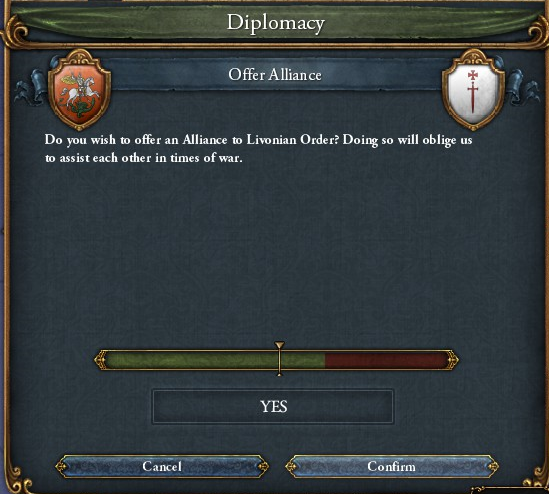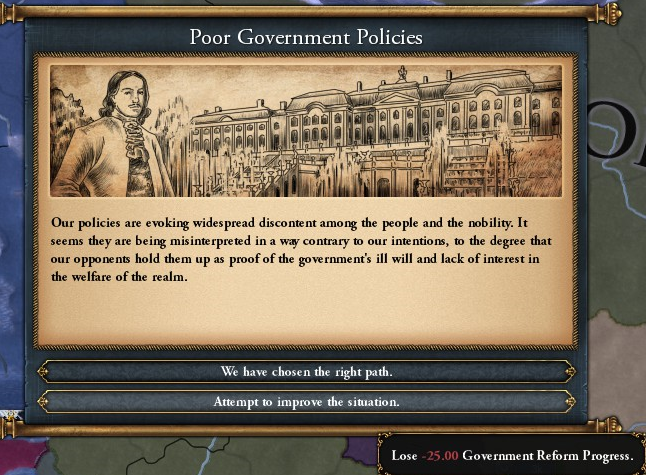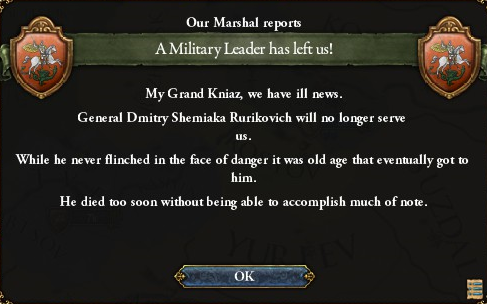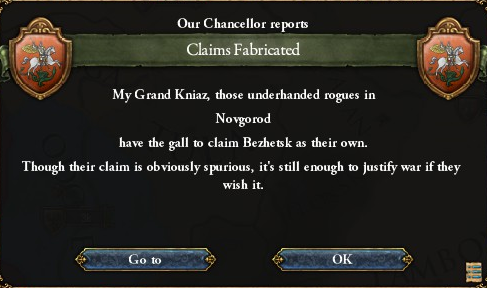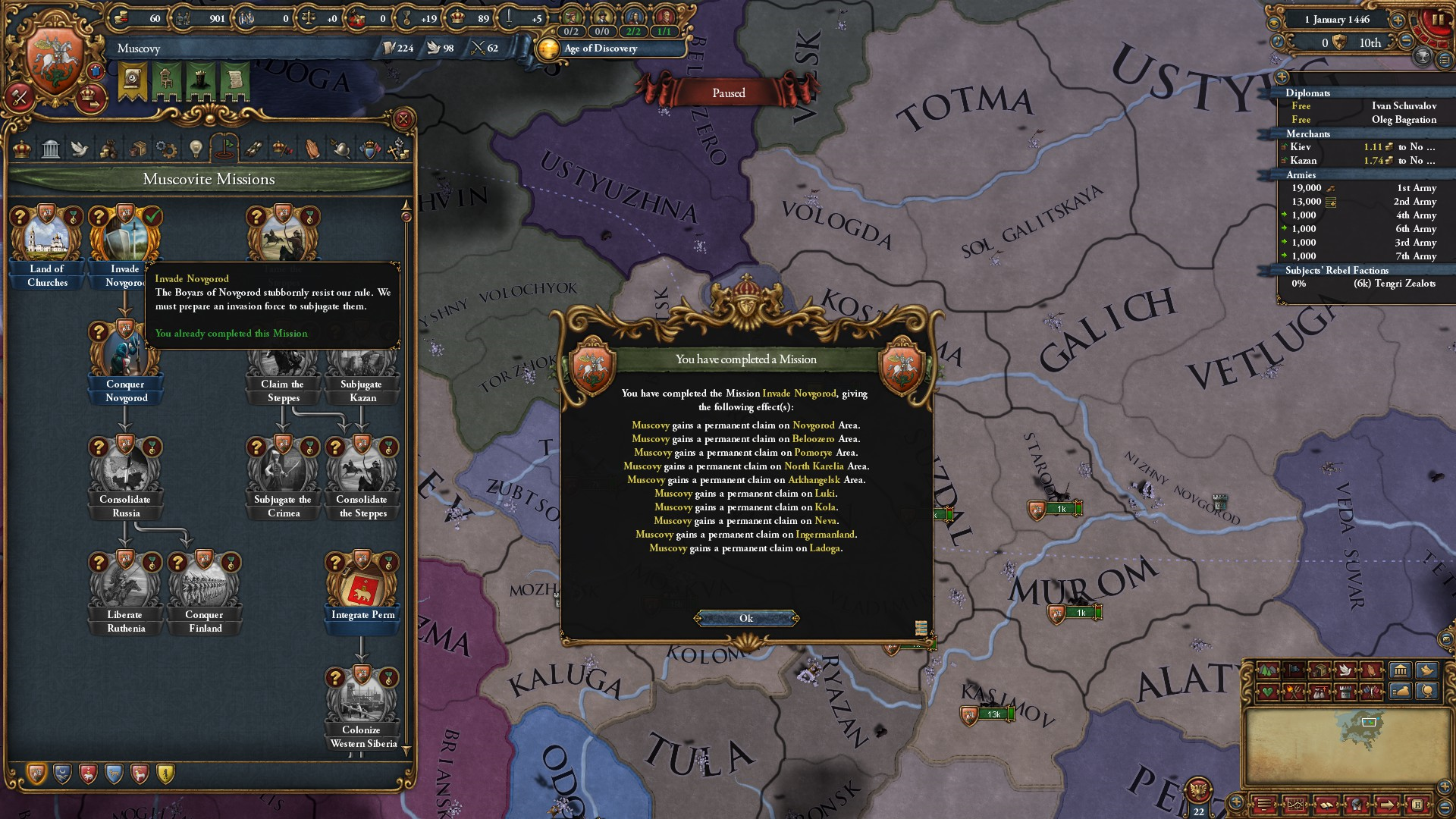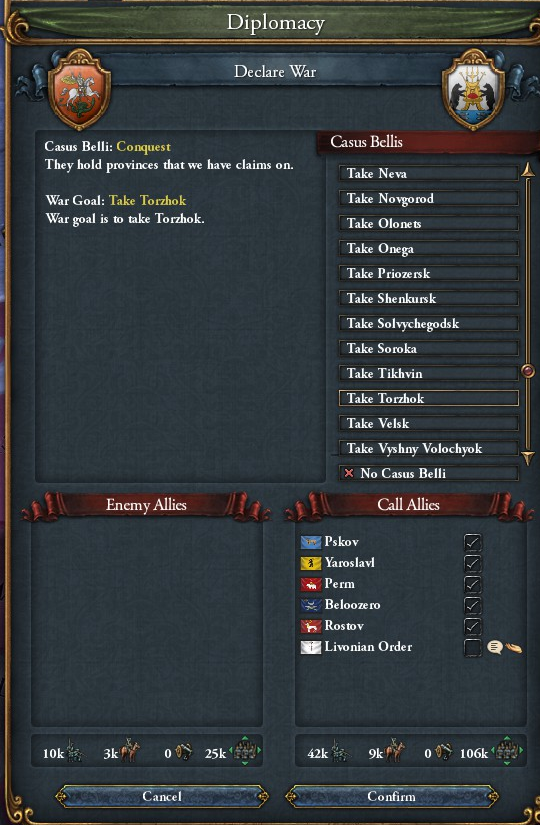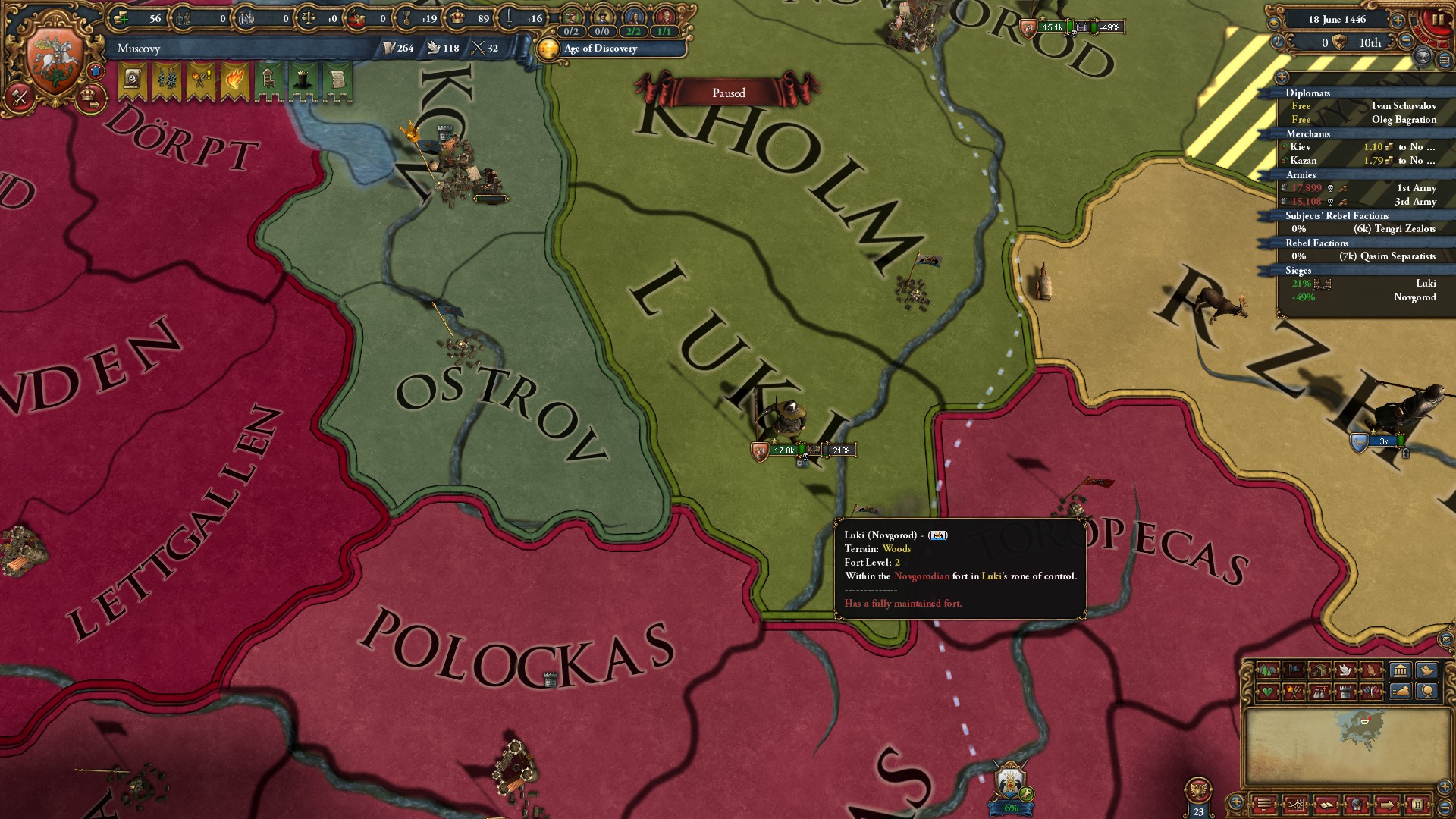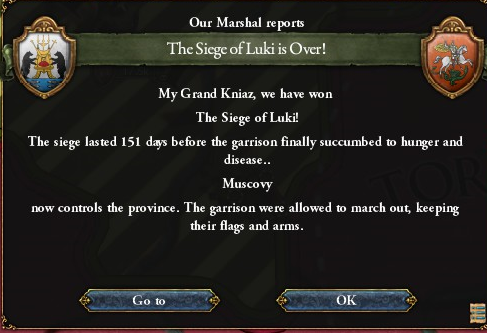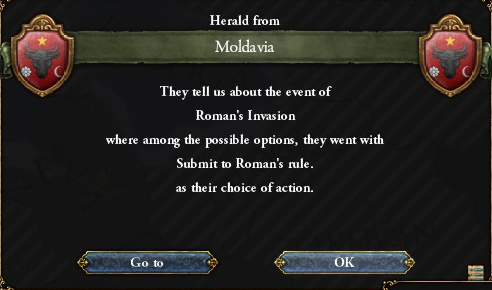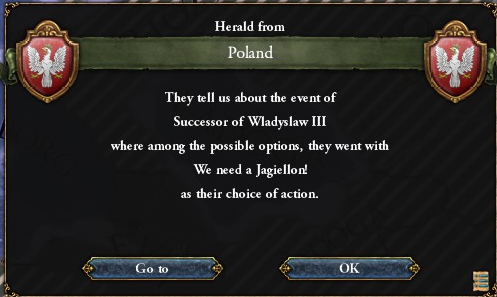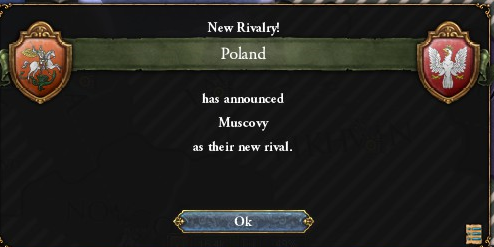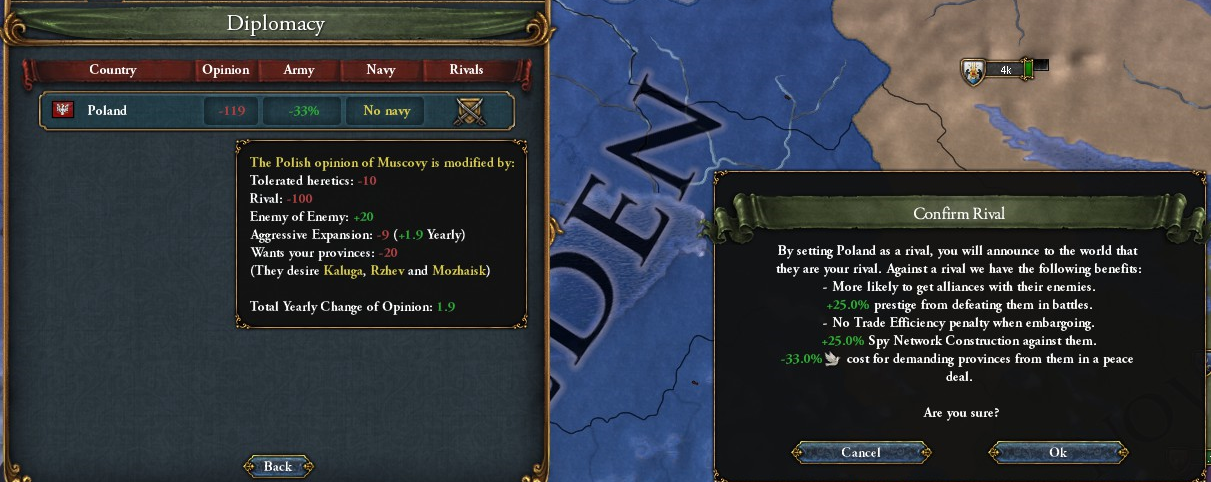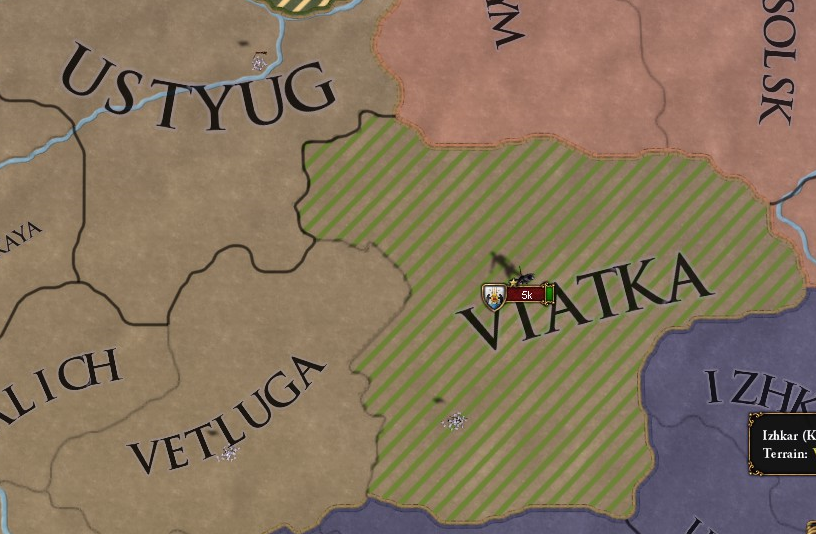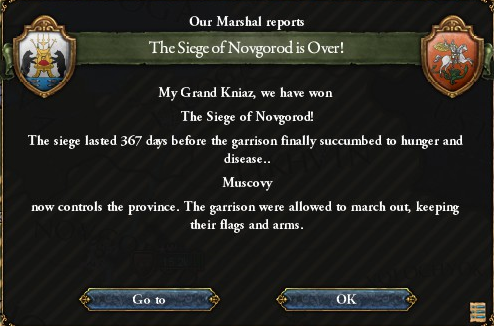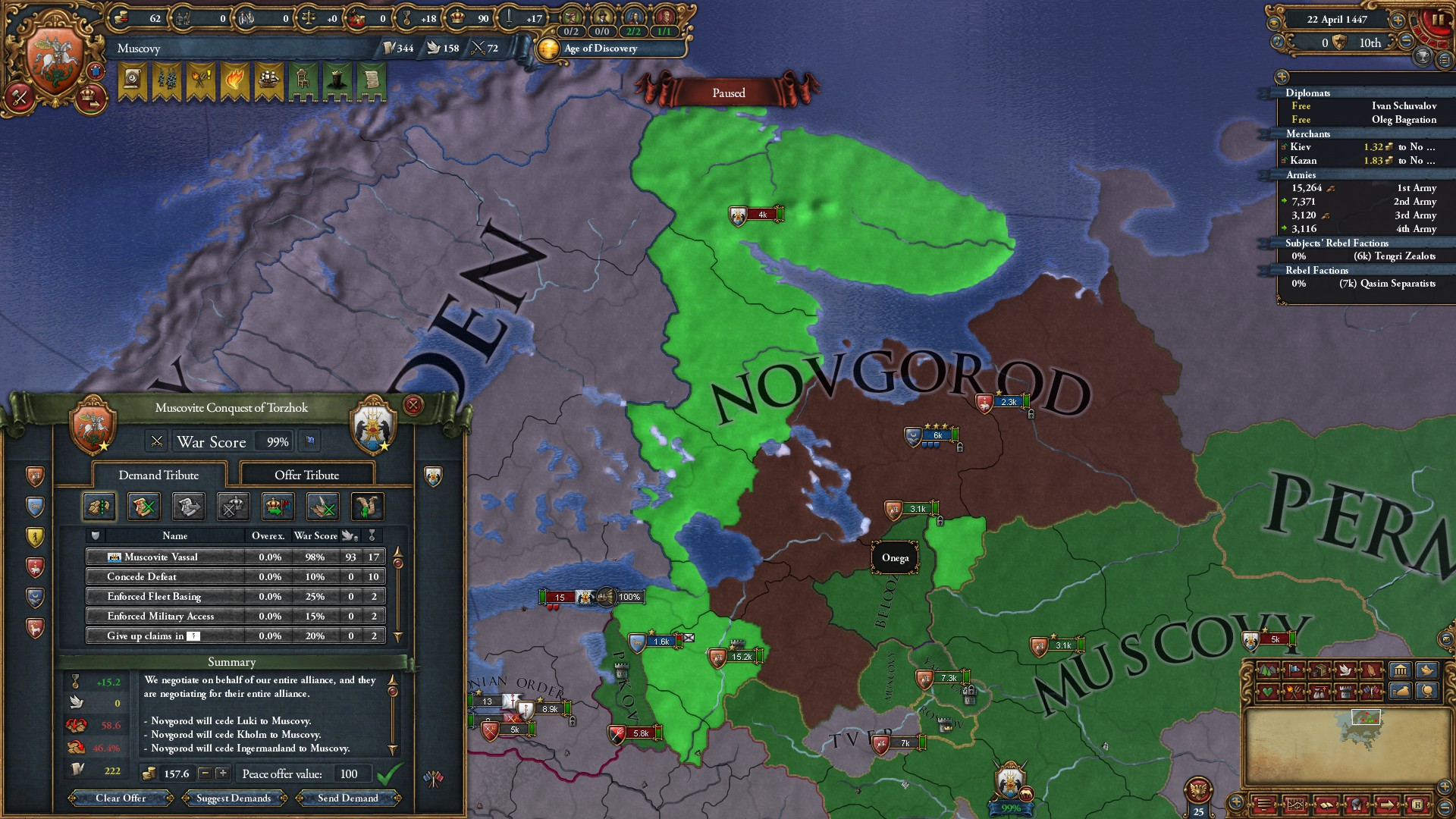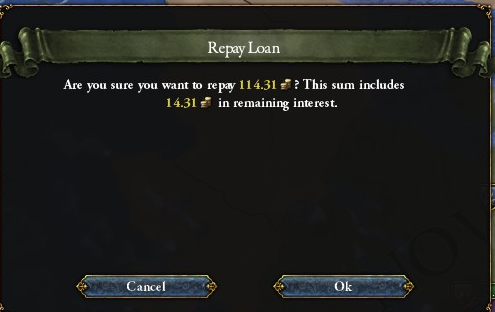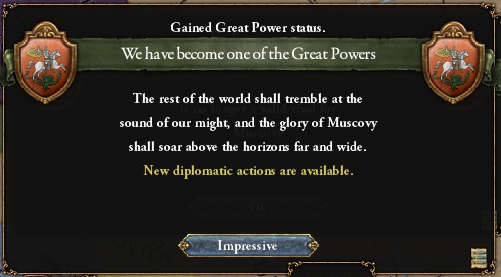The Twin Legacies of Rurik
Chapter 1: Moskva’s History and Situation (1283-November 1444)
DISCLAIMER: I do not support any of the actions of the real-life Russian state in regards to their unprovoked war of aggression in Ukraine (as future in-game actions will hopefully make obvious). Please don't bring IRL politics into this. Anyway, let's begin.

The city of Moskva has been inhabited since before recorded history, but the city itself was founded sometime in the 1100s by the Kievan Rus’, and came under the rule of the principality of Vladimir-Suzdal. This principality was invaded along with the other Rus’ principalities by Batu Khan of the Mongols (later the Golden Horde), who burned Moskva to the ground and forced all of Kievan Rus’ either to be under the Mongols’ direct rule (the south) or pay tribute (the north).
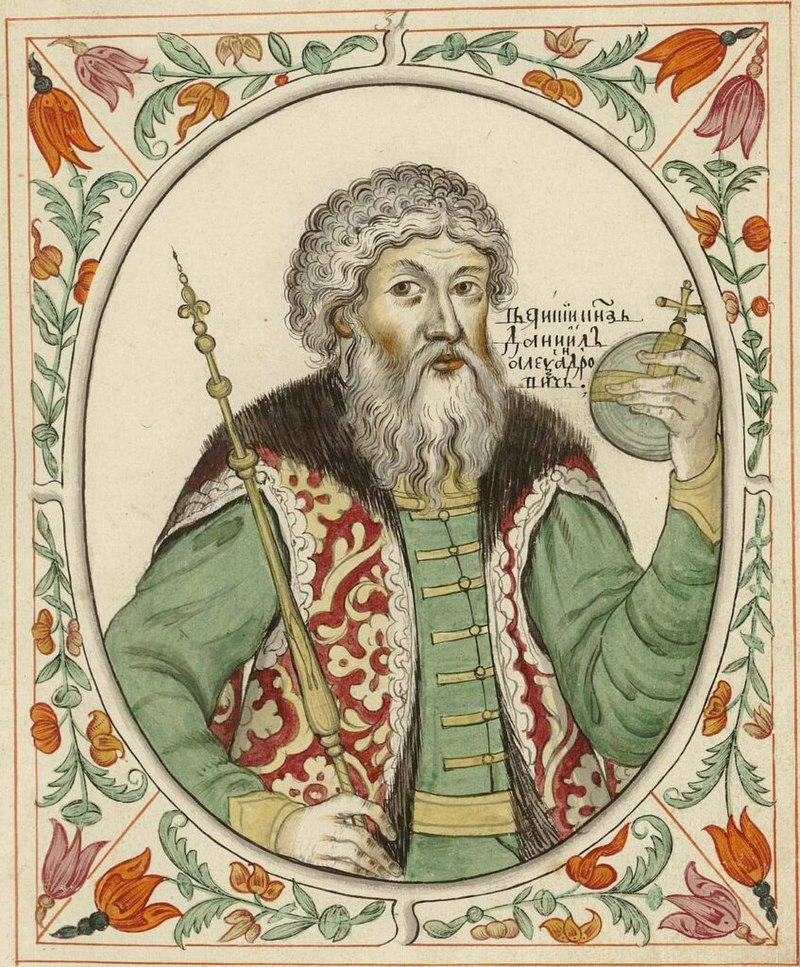
Daniil of Moskva
In the 1260s Moskva came under the rule of Daniil, the youngest son of Alexander Nevsky, Prince of Vladimir-Suzdal who famously defeated the Swedes at the battle of the Neva. Daniil would found the Grand Duchy of Moskva (which was later Latinized and then Anglicized into “Muscovy”) in 1283, and it would eventually become one of the richest and most powerful Rus’ principalities, and undertake a path of expansion. Daniil (1283-1303) conquered Kolomna and inherited Pereslavl-Zalessky (Yuriev in game), and his son Yuri (1303-1325) would conquer Mozhaisk. Yuri allied with Khan Uzbek of the Golden Horde, and this helped the Grand Duchy to gain power over its rivals. His son Ivan I (1325-1340) continued to help the Mongols, especially when Moskva’s rival Tver rebelled against the Horde in 1327. But that would not last forever.
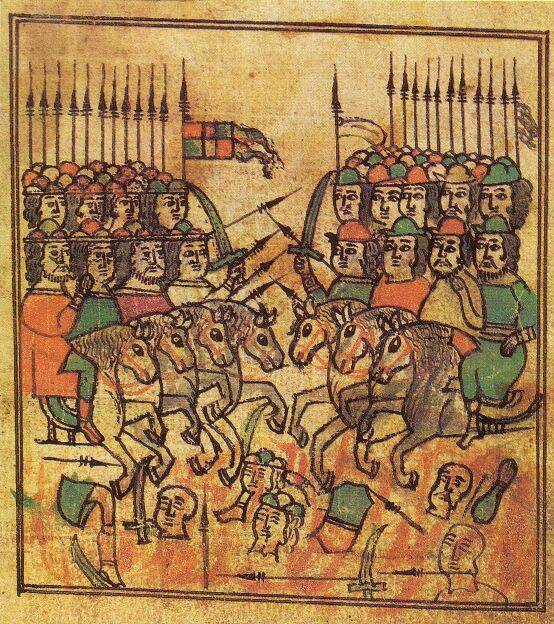
Battle of Kulikovo (1380)
Enter Dmitry Ivanovich. Son of Ivan II (1353-1359), he came to power in 1359 and allied with the Orthodox Church against the Mongols. He won a victory at the Battle of Kulikovo in 1380, earning the nickname “Donskoy”, and despite Moscow being sacked in retaliation two years later, the victory would remain in the Russian national consciousness as proof that they could beat the Mongols and become free. Dmitry would die in 1389 and be succeeded by his son Vasiliy I. Vasiliy would expand Moscow east, taking over Suzdal, Vologda, Nizhny Novgorod, and Viatka, and subjugating Great Perm. He would stop paying tribute to the Great Khan after the Timurid invasion of 1408.
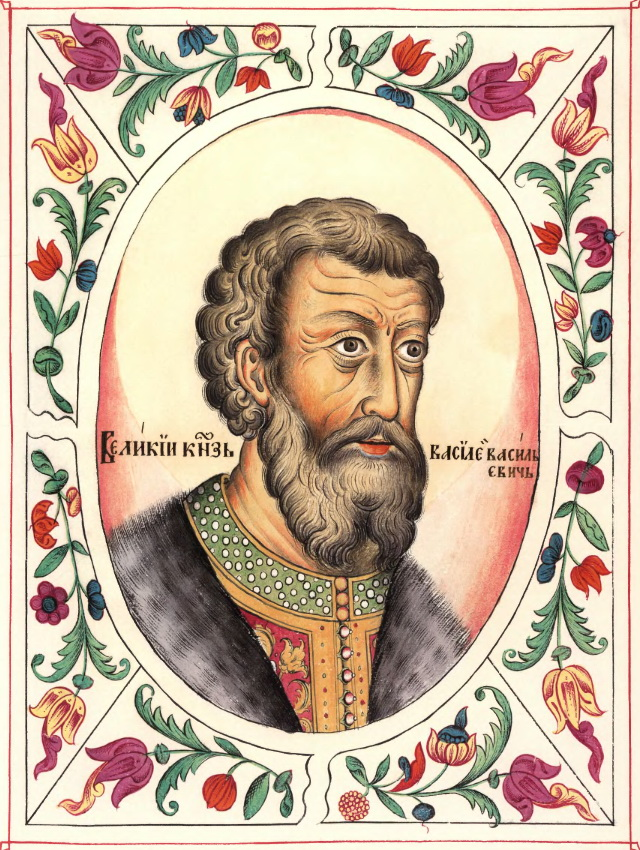
Vasiliy II of Moskva (ruler at start of game)
Upon the death of Vasiliy I in 1425, he was succeeded by his 10-year-old son, Vasiliy II. Vasiliy’s early reign was characterized by a succession crisis, as his uncle Yuri also had a claim on the throne. Vasiliy held onto the throne through his childhood through aid from the Lithuanian monarch, Vytautas, and the ever-present Golden Horde. However, Yuri would defeat Vasiliy in battle in 1433 and briefly take over Moscow. Upon his death in 1434, Yuri would pass the throne to his own son, Vasiliy the Cross-Eyed. However, his time on the throne was short, as his brother, Dmitry Shemiaka, would revolt against him and ally with Vasiliy II, and Vasiliy the Cross-Eyed would be executed. Vasiliy II would return to the throne, but Moskva would next be invaded by Kazan in 1439. Shemiaka would fail to support Vasiliy, and would be chased out of the country before returning and pledging his allegiance to the rightful monarch. Shemiaka now holds the post of Vasiliy’s top general, but his loyalty is not necessarily absolute.

Despite its internal conflicts, the Muscovite state is the premier power in Russia, holding sway over most of the other principalities that still exist. In the long term, it could choose to expand west, unifying the lands of the old Rus’, or set its sights eastward into the Mongol khanates and Siberia.
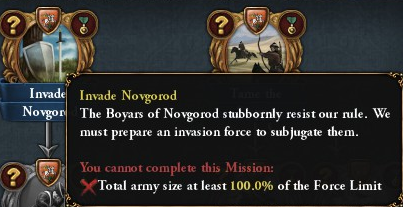
But in the short term, its main threat is the Republic of Novgorod. Novgorod is the only other Russian state holding as much land as Moskva, though its population and army size are smaller and it lacks allies. Which is good, as otherwise Vasiliy’s cautious nature might preclude him declaring the war.
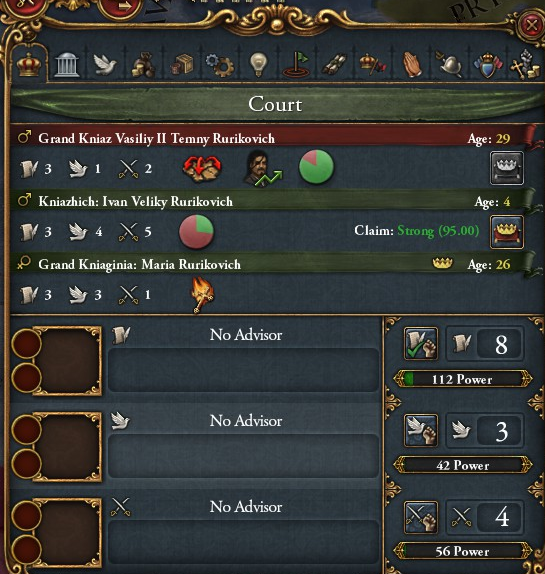
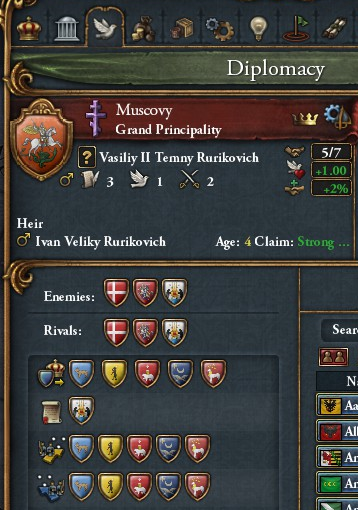
Vasiliy’s son, Ivan, born in 1440, will likely succeed him upon his death. Moskva holds five states in vassalage: Yaroslavl (home of Vasiliy’s wife, Maria), Beloozero, and Rostov, all ruled by other Rurikovich princes of distantly related lines to the Muscovite one. Tver and Ryazan nearby are both ruled by Rurikovich princes as well but are not ruled over by Moskva just yet. The other two subjects are Great Perm to the east, ruled by Yermolay I of House Velikopermsky, and Pskov, a republic similar to Novgorod’s, separated from Moskva by Novgorod.
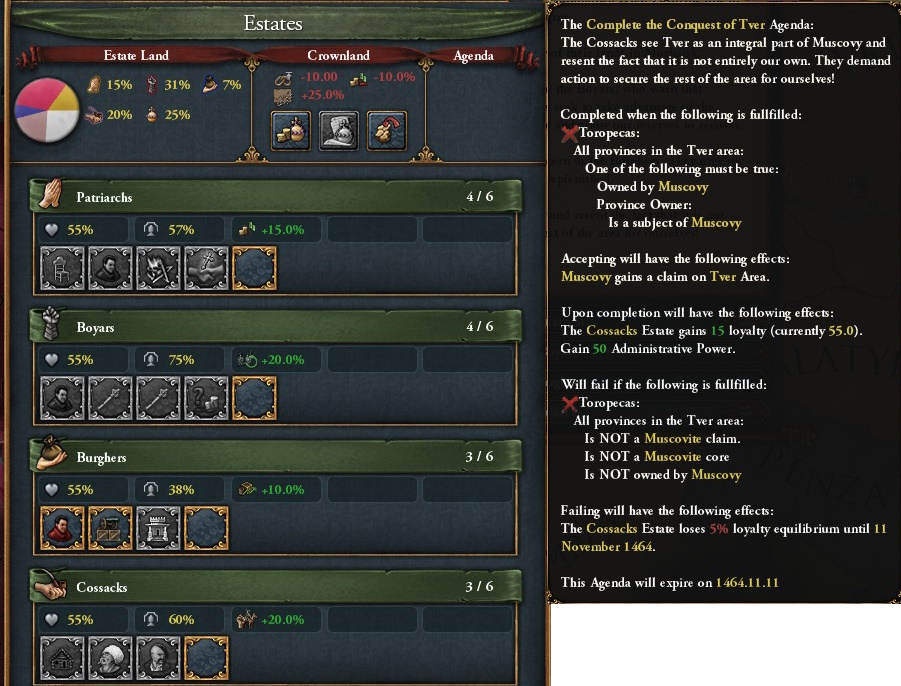
Local power in Moskva is held by several distinct groups with their own goals and level of influence over the Grand Duke. The clergy, led by the Patriarch of Moskva, want more focus on the church, as well as to fight the heathens to the south and east. The boyars, or local nobles, want to expand their own power bases and expand their territory into nearby nations. The wealthy merchants want to continue to make money from trade, and are especially competitive with the Russian rivals of Novgorod. Lastly, the Cossacks were a group of free people originally of mixed Turkish origin living in the southern part of the Grand Duchy. They were skilled cavalrymen and served as border guards defending against the Great Horde and Khanate of Kazan, as well as on the borders with the other Russian Principalities.
When Vasiliy summoned these estates to advise him, he would choose to hear them all out, but while the clergy, boyars, and and merchants complained about finances and manpower reserves, the Cossacks advocated expansion, weirdly enough, against Tver. Vasiliy would accept the Cossacks’ agenda, putting a target on Tver along with Novgorod. After hearing their demands, Vasiliy would demand some of the estates’ land in repayment.
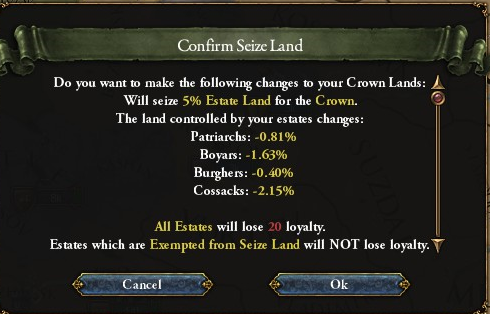
Chapter 1: Moskva’s History and Situation (1283-November 1444)
DISCLAIMER: I do not support any of the actions of the real-life Russian state in regards to their unprovoked war of aggression in Ukraine (as future in-game actions will hopefully make obvious). Please don't bring IRL politics into this. Anyway, let's begin.

The city of Moskva has been inhabited since before recorded history, but the city itself was founded sometime in the 1100s by the Kievan Rus’, and came under the rule of the principality of Vladimir-Suzdal. This principality was invaded along with the other Rus’ principalities by Batu Khan of the Mongols (later the Golden Horde), who burned Moskva to the ground and forced all of Kievan Rus’ either to be under the Mongols’ direct rule (the south) or pay tribute (the north).

Daniil of Moskva
In the 1260s Moskva came under the rule of Daniil, the youngest son of Alexander Nevsky, Prince of Vladimir-Suzdal who famously defeated the Swedes at the battle of the Neva. Daniil would found the Grand Duchy of Moskva (which was later Latinized and then Anglicized into “Muscovy”) in 1283, and it would eventually become one of the richest and most powerful Rus’ principalities, and undertake a path of expansion. Daniil (1283-1303) conquered Kolomna and inherited Pereslavl-Zalessky (Yuriev in game), and his son Yuri (1303-1325) would conquer Mozhaisk. Yuri allied with Khan Uzbek of the Golden Horde, and this helped the Grand Duchy to gain power over its rivals. His son Ivan I (1325-1340) continued to help the Mongols, especially when Moskva’s rival Tver rebelled against the Horde in 1327. But that would not last forever.

Battle of Kulikovo (1380)
Enter Dmitry Ivanovich. Son of Ivan II (1353-1359), he came to power in 1359 and allied with the Orthodox Church against the Mongols. He won a victory at the Battle of Kulikovo in 1380, earning the nickname “Donskoy”, and despite Moscow being sacked in retaliation two years later, the victory would remain in the Russian national consciousness as proof that they could beat the Mongols and become free. Dmitry would die in 1389 and be succeeded by his son Vasiliy I. Vasiliy would expand Moscow east, taking over Suzdal, Vologda, Nizhny Novgorod, and Viatka, and subjugating Great Perm. He would stop paying tribute to the Great Khan after the Timurid invasion of 1408.

Vasiliy II of Moskva (ruler at start of game)
Upon the death of Vasiliy I in 1425, he was succeeded by his 10-year-old son, Vasiliy II. Vasiliy’s early reign was characterized by a succession crisis, as his uncle Yuri also had a claim on the throne. Vasiliy held onto the throne through his childhood through aid from the Lithuanian monarch, Vytautas, and the ever-present Golden Horde. However, Yuri would defeat Vasiliy in battle in 1433 and briefly take over Moscow. Upon his death in 1434, Yuri would pass the throne to his own son, Vasiliy the Cross-Eyed. However, his time on the throne was short, as his brother, Dmitry Shemiaka, would revolt against him and ally with Vasiliy II, and Vasiliy the Cross-Eyed would be executed. Vasiliy II would return to the throne, but Moskva would next be invaded by Kazan in 1439. Shemiaka would fail to support Vasiliy, and would be chased out of the country before returning and pledging his allegiance to the rightful monarch. Shemiaka now holds the post of Vasiliy’s top general, but his loyalty is not necessarily absolute.

Despite its internal conflicts, the Muscovite state is the premier power in Russia, holding sway over most of the other principalities that still exist. In the long term, it could choose to expand west, unifying the lands of the old Rus’, or set its sights eastward into the Mongol khanates and Siberia.

But in the short term, its main threat is the Republic of Novgorod. Novgorod is the only other Russian state holding as much land as Moskva, though its population and army size are smaller and it lacks allies. Which is good, as otherwise Vasiliy’s cautious nature might preclude him declaring the war.


Vasiliy’s son, Ivan, born in 1440, will likely succeed him upon his death. Moskva holds five states in vassalage: Yaroslavl (home of Vasiliy’s wife, Maria), Beloozero, and Rostov, all ruled by other Rurikovich princes of distantly related lines to the Muscovite one. Tver and Ryazan nearby are both ruled by Rurikovich princes as well but are not ruled over by Moskva just yet. The other two subjects are Great Perm to the east, ruled by Yermolay I of House Velikopermsky, and Pskov, a republic similar to Novgorod’s, separated from Moskva by Novgorod.

Local power in Moskva is held by several distinct groups with their own goals and level of influence over the Grand Duke. The clergy, led by the Patriarch of Moskva, want more focus on the church, as well as to fight the heathens to the south and east. The boyars, or local nobles, want to expand their own power bases and expand their territory into nearby nations. The wealthy merchants want to continue to make money from trade, and are especially competitive with the Russian rivals of Novgorod. Lastly, the Cossacks were a group of free people originally of mixed Turkish origin living in the southern part of the Grand Duchy. They were skilled cavalrymen and served as border guards defending against the Great Horde and Khanate of Kazan, as well as on the borders with the other Russian Principalities.
When Vasiliy summoned these estates to advise him, he would choose to hear them all out, but while the clergy, boyars, and and merchants complained about finances and manpower reserves, the Cossacks advocated expansion, weirdly enough, against Tver. Vasiliy would accept the Cossacks’ agenda, putting a target on Tver along with Novgorod. After hearing their demands, Vasiliy would demand some of the estates’ land in repayment.

Last edited:
- 1


